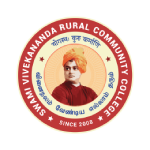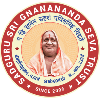Fundamentals of Electricity, Electric Machines and Measuring Instruments
Course Objectives
While studying Fundamentals of Electricity, Electric Machines, and Measuring Instruments, the student shall be able to:
- Define Ohm’s law, Kirchhoff’s law
- Explain the Parallel and series circuit
- Describe the basic concepts of diode, MOSFET, PN Junction and rectifiers
- Understand about AC and DC Machines
- Handle the measuring instruments used by an electrician
Course Outcomes
After completion of the Course Fundamentals of Electricity, Electric Machines, and Measuring Instruments, the student will be able to:
- Explain the basic term of electrical circuits
- Describe the principle of electro-magnetism and its applications
- Comprehend about Inverters and its types
- Explain the principle and working of Transformer
- Classify the measuring instruments and work using the same
Block-1: Fundamentals of Electricity and Electric Circuits
Unit-1 – Fundamentals of Electricity and Electron Theory
Fundamental terms – Basic Electrical circuits – Ohm’s Law, Laws of resistance – Resistances in series and parallel – Voltage and current division – Kirchhoff’s Laws and applications
Unit-2: Electric Circuits and Connections
Simple electrical circuits – Concept three-phase Star and Delta connection – Resistive, Inductive & Capacitive loads
Block-2: AC Circuits and Semiconductor Materials
Unit-3: Electromagnetism and Alternating Current Circuits
Principle of electro-magnetism – MMF, Flux density, reluctance – Fundamentals and characteristics of AC circuits – AC through R, L and C load – Power factor
Unit-4: Semi-Conductor Materials
‘P’ type and ‘N’ type –P-N-junction – Basic concept of diode, transistor, MOSFET, SCR and IGBT – D.C. rectifier circuit: Half wave, Full wave and Bridge rectifier circuit – Filter circuits
Block-3: IC’s and DC Machines
Unit-5: Inverter and Integrated Circuits
Basics of Inverter – Types of Inverters – Basic concept of Integrated Circuits – Important ICs used in SMPS and UPS – Heat sink
Unit-6: DC Machines
General concept of Electrical Machines – Types of DC Machine, Constructional features of D.C machine – Principle of D.C. generator and motor – Series shunt and compound generators – Application of D.C. generators and motors.
Block-4: AC Machines and Measuring Instruments
Unit-7: AC Machines
AC motors – Constructional details of single phase motors – Types and applications – Construction of 3-phase induction motor, Starter for 3-phase induction motors – Alternator: Types, construction and operation – Transformer: construction, working principle – Types of Transformer, C.T., P.T. Instrument and Auto Transformer (Variac)
Unit-8: Electrical Measuring Instruments
Classification of Measuring Instruments – PMMC & MI meter (Ammeter, Voltmeter) – Range extension Study of Multimeter (Digital/Analog), Wattmeter – P.F. meter, Energy meter (Digital/analog) – Insulation Tester (Megger), Frequency meter – Phase Sequence meter, Tachometer – Study of Oscilloscope
Electrical Wiring and Illumination
Course Objectives
While studying Electrical Wiring and Illumination, the student shall be able to:
- Gain knowledge about electrical accessories like switches, sockets, holders etc.
- Explain about the circuit breakers and panel board
- Describe about the basics of illumination and IE rules
- Detail about the construction and working of various home electrical appliances
Course Outcomes
After completion of the Course Electrical Wiring and Illumination, the student will be able to:
- Perform wire crimping
- Select the type of cable required for the specific situation
- Describe about fuse and selection of circuit breaker
- Explain the functioning of all home electrical appliances
Block-1: Wire, Switches and Cables
Unit-1: Electrical Wiring
Introduction – Common Electrical wiring Accessories, their specifications – Different methods of measuring the values of resistance – Circuit connection, Solders, flux, soldering and de-soldering technique – Wire Crimping
Unit-2: Switches and Cables
Explanation of switches – Lamp holders, plugs and sockets – Conductors, Strands, Cores of Cable – Insulation of a Cable – Types and Selection of cables
Block-2: MCB, Panel Board and Illumination
Unit-3: Circuit Breakers and Panel Board
Brief description of Fuse – MCB’s, MCCB’s, Air, Vacuumed, Oil and SF6 Circuit Breakers – Selection of Circuit Breakers – Panel Boards: Types
Unit-4: Lighting and Illumination
Basics of illumination – Types of light (GLS,FTL, CFL, LED, MVL etc.) – Construction, working and applications – Light selection by manual method – IE rules
Block-3: Electrical Appliances
Unit-5: Fan and Heating Appliances
Types and selection of fans used at home – Ceiling fans, Table fan, Stand fan and Exhaust Fan – Trouble shooting and servicing of fans – Construction and working of heating appliances
Unit-6: Home Electrical Appliances
Mixers & Grinders – Wet Grinders – Washing machines – Coolers, Geyser – Stabilizer
Block-4: Batteries and its Application
Unit-7: Batteries
Construction – Methods of charging – Methods of connection and maintenance – Precautions to be taken
Unit-8: Types and Applications of Batteries
Ni-cadmium & Lithium cell – Different types of lead acid cells – Sealed Maintenance free Batteries – Solar battery – Application of battery/cell in Inverter, Battery Charger, UPS.
Installation, Maintenance and Safety
Course Objectives
While studying Installation, Maintenance and Safety, the student shall be able to:
- Plan for domestic wiring installation
- Recite the importance and need for earthing
- Explain about Lightning Arrestor and Electroplating
- Describe the procedure of servicing of Home Appliances
- Gain knowledge about the safety measures to be followed
Course Outcomes
After completion of the Course Installation, Maintenance and Safety, the student will be able to:
- Demonstrate the earthing and wiring of house
- Perform the repairing and servicing work of fan,light, mixer,grinders, geyser etc.
- Recite about the principle of lightning arrestor
Block-1: Wiring and Earthing
Unit-1: Domestic Wiring
Domestic installation – Planning and Layout – Estimation: Domestic Installation
Unit-2: Earthing
Principle of different methods of earthing – Importance of Earthing – Improving of earth resistance – Earth Leakage circuit breaker (ELCB) – Selection of Earthing
Block-2: Lightning Arrestor and Electroplating
Unit-3: Lightning Arrestor
Introduction to Lightening Arresters – Types – Necessity and Advantages – Layout and Installation
Unit-4: Electroplating
Basic Principle – Electro Chemical effect – Explanation of Cells – Applications of Electroplating
Block-3: Servicing of Electrical Equipments
Unit-5: Servicing of Electrical Equipment -I
Servicing of Mixers & Grinders – Juicer and Chopper – Wet grinders – 1HP motors – Fans
Unit-6: Servicing of Electrical Equipment -II
Servicing of Cooler, Geyser – Stabilizer – UPS – Television – Instructions for maintenance of TV
Block-4: Electrical Hazards and Safety Measures
Unit-7: Electrical Hazards and Basic Safety
Electrical Hazards and its effects – Basic safety introduction – Personal protection and PPE – Basic injury prevention – Basic first aid – Hazard identification and avoidance
Unit-8: Safety Measures
Use of Fire extinguishers – Visit and observation of sections – Elementary first Aid – Concept of Standards
Fundamentals of Electricity, Electrical Machines and Measuring Instruments (Practical)
The following experiments are to be carried out:
- Verification of ohms law by using ammeter, voltmeter in dc circuit.
- Verification of the characteristics of DC series circuits
- Verification of the characteristics of DC parallel circuits
- Verification of Kirchhoff’s laws by using Meter Bridge or appropriate method or by using series and parallel circuits.
- Verification of Resistance laws by using ohm meter.
- Testing of accumulator/lead acid battery by hydrometer and tongue tester on charging and discharging.
- Measurement of Power by voltmeter and ammeter.
- Construction and verification of OR , AND , NOT gate
- Construction and verification of Universal gates: NOR, NAND – XOR gate
- Testing on Electrical and Electronic symbols.
- Practice on fixing electrical accessories on switch boards/main boards .
- Lamp circuits- connection of lamp and socket by separate switches in surface conduit wiring.
- Simple lamp circuits- install stair case wiring in surface conduit wiring. Testing of wiring by ohmmeter/ megger
- Verify Constructional features of D.C machine.
- Verify working of series, shunt and compound DC generators and motors.
- Verify Constructional details of single phase AC motors and its types.
- Verify Construction of 3 phase induction motor and Starter for 3 phase induction motors.
- Verify construction, Working principle and types of Transformer.
Electrical Equipment Installation, Maintenance and safety (Practical)
The following experiments are to be carried out:
- Procedure for testing of domestic appliances.
- Detection of basic electrical faults such as improper / no earth, defective power cord, connector or internal wiring defect, short / loose / open contacts, blown fuse of Mixer/ Juicer/ Grinder
- Diagnosing the reasons for appliance not running due to dysfunctional motor, overload circuit breaker tripping, no power supply – faulty fitting of dome lid cap, dome casket, jar overloading of Mixer/ Juicer/ Grinder
- Verify the construction, working of Types. Lighting: Basics of illumination, Types of light (GLS, FTL, CFL, LED, MVL etc.)
- Verify the Principle of different methods of earthing.
- Verify the working and Importance of Earthing.
- Verify the construction and working Earth Leakage circuit breaker (ELCB).
- Verify the construction and working principle of Lightening Arresters.
- Dismantling, re-assembling and troubleshooting of Electric Fan and Exhaust fan
- Dismantling, re-assembling and troubleshooting of immersion water heater and hair dryer
Life Coping Skills (LCS) and Communication Skills (CNS) – Core Course for all Vocational Diploma Programmes
Life Coping Skills and Communication Skills have been included to help the students to understand the meaning of life and to understand the meaning of relationship and how we communicate in every day life.
Examination System
Examination to Life Coping Skills and Communication Skills are designed to maintain quality of standard. Theory will be conducted by the University in the identified Examination Centres. For the Assignment students may be permitted to write with the help of books/materials for each Course, which will be evaluated by the Evaluators appointed by the University.
Assignment (Internal)
Assignment carries 30 marks, consists of descriptive type of questions for each Course (3 X 10 = 30 Marks). Learners are expected to write 10-15 pages for each assignment. Submission of Assignment is compulsory.
Theory Examination (External)
Students shall normally be allowed to appear for Theory Examination by completing Practical and Assignment. The Term-End Examination shall carry Section- A, Section- B and Section- C

